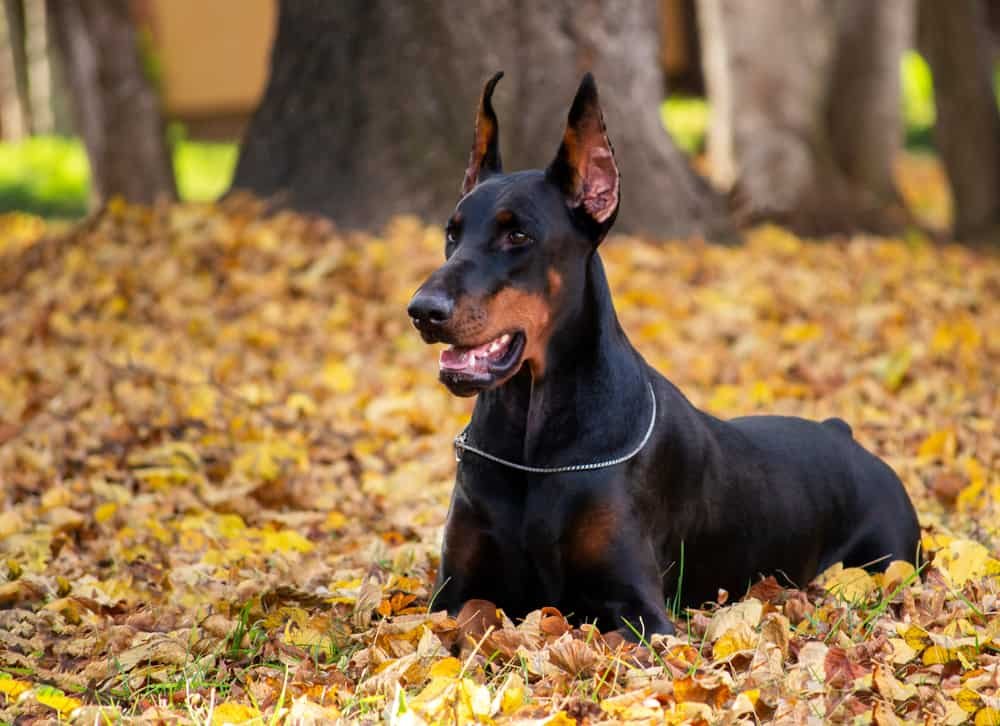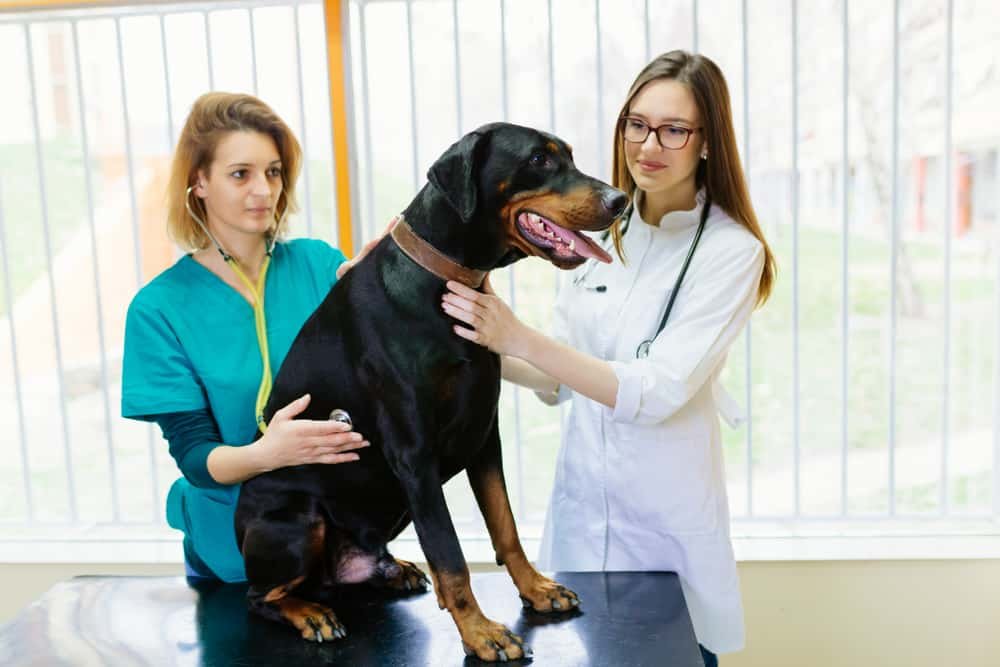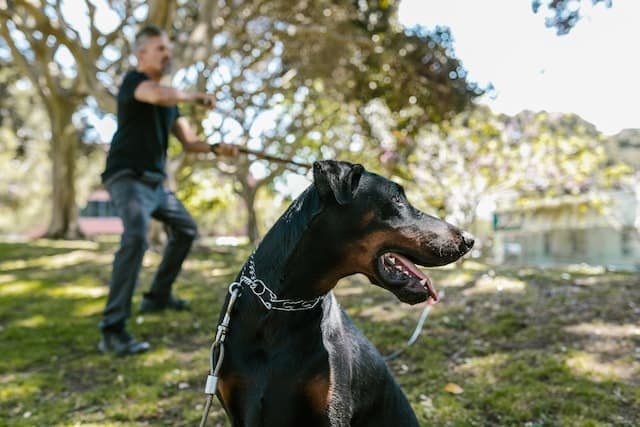Doberman are an incredibly loyal breed, and will become attached to their human family very quickly. However, they can also be quite protective and territorial, so it’s important to socialize them well from an early age.
Dobies are also known for being high-energy dogs, so they’ll need plenty of exercise and stimulation to stay happy and healthy. With the right training and care, a Doberman can make a wonderful addition to any family. Here’s we have discuss about most important things to know before getting a Doberman.
Table of Contents
Things To Know Before Getting A Doberman

1. Lifespan of Doberman
The average lifespan of a Doberman Pinscher is between 10 and 12 years, though some may live up to 15 years. One of the many reasons for such a short lifespan is their high energy levels.
Dobermans are known to be one of the most active breeds, and they require a lot of exercise to stay healthy both mentally and physically. Without enough outlets for their energy, they can become destructive or even aggressive.
Proper care and training are essential for helping a Doberman live a long and happy life.
2. Size and Weight of Doberman
Dobermans come in two different size varieties: standard and miniature. Standard Dobies are between 26 and 28 inches tall at the shoulder, while miniatures are between 24 and 26 inches.
There is also a difference in weight, with standards typically weighing between 60 and 80 pounds, and miniatures usually falling between 10 and 20 pounds.
3. Common Health Problems in Doberman

Dobermans are generally a healthy breed, but like all dogs, they are susceptible to certain health conditions. Some of the most common problems seen in Dobies include hip and elbow dysplasia, von Willebrand’s disease, and cardiac issues.
Hip and elbow dysplasia are both genetic conditions that can cause joint pain and inflammation. Von Willebrand’s disease is a blood disorder that can cause excessive bleeding.
Dobermans are also prone to heart conditions such as dilated cardiomyopathy, which can be fatal.
Due to these very reasons, it is important to only purchase a Doberman from a reputable breeder who can provide health clearances for the parents. Regular vet checkups and screenings can help to identify these conditions early on and give your dog the best chance for a long and healthy life.
4. Diet and Nutrition for Doberman
A healthy diet is essential for all dogs, but it’s especially important for high-energy breeds like the Doberman. They need a diet that is rich in protein and fat to help them maintain their energy levels.
Dobermans also benefit from a diet that includes omega-3 fatty acids, as these can help to reduce inflammation and joint pain.
As with all dogs, it’s important to avoid giving your Doberman table scraps or too many treats. Doing so can lead to weight gain, which can put unnecessary stress on their joints and vital organs.
Feeding your Doberman a high-quality, well-balanced diet is one of the best things you can do for their overall health and wellbeing.
5. Exercise Needs of Doberman
Dobermans are a high-energy breed and need a lot of exercise to stay healthy and happy. They should be taken on at least one long walk or run every day, and they also enjoy playing fetch and other active games.
Dobermans can live in both rural and urban areas, but they do best in homes with large yards where they can run and explore. Dobermans are not the best breed for apartment living, as they need a lot of space to run and play.
6. Training Needs of Doberman
Proper training is essential for all dogs, but it’s especially important for Dobermans. They are a very intelligent breed, but they can also be headstrong and stubborn.
Early socialization and obedience training are essential for helping your Doberman learn how to behave around people and other animals. Dobermans are quick learners and can be trained to do a variety of tricks and commands. They excel in obedience, agility, and other dog sports.
When training your Doberman, it’s important to use positive reinforcement techniques such as praise, treats, and rewards. Harsh punishment is not effective with this breed and can only lead to mistrust and fear.
7. Do Dobberman like to Cuddle
Dobermans are not typically a cuddly breed, but that doesn’t mean they don’t enjoy spending time with their human companions. They are very loyal and affectionate dogs who thrive on human interaction.
While Dobermans may not be the best lap dogs, they do enjoy being close to their humans and will often follow them around the house.
Dobermans are also known for being great family dogs and are very good with children. They are patient and tolerant, but they can also be protective of their family if they sense a threat.
8. Do Dobermans bark a lot?
Dobermans are not typically known for being barkers, but they will bark if they sense something is wrong or if they are trying to protect their family.
If you are looking for a guard dog, then a Doberman may be a good choice. They are very alert and will bark at anything they perceive as a threat.
9. Do Dobermans need a lot of grooming?
Dobermans have a short, sleek coat that is easy to maintain. They only need to be brushed once or twice a week to remove any loose hair.
Dobermans do not need to be bathed often, but they should be given a bath every few months using a mild dog shampoo. Their nails should be trimmed regularly, and their ears should be checked for any signs of infection.





